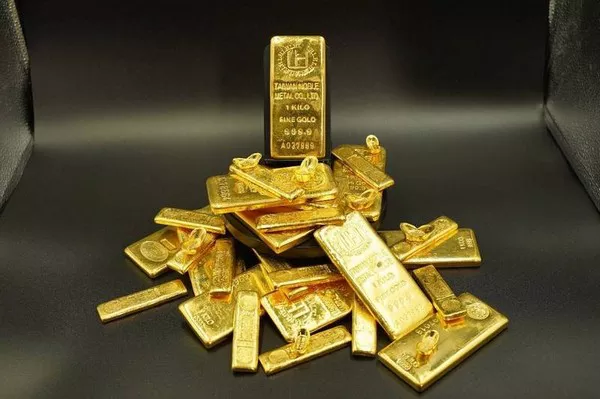Gold has long been regarded as a store of value and a safe haven asset, attracting investors seeking to diversify their portfolios and hedge against economic uncertainties. When it comes to investing in gold, two primary options come to mind: gold futures and spot gold. Both offer exposure to the precious metal, but they operate differently and come with distinct advantages and risks. In this article, we’ll explore the key differences between gold futures and spot gold and discuss important considerations for investors.
I. Understanding Gold Futures
Gold futures are financial contracts that obligate the buyer to purchase, and the seller to deliver, a specific quantity of gold at a predetermined future date and price. These contracts are traded on commodities exchanges such as the Chicago Mercantile Exchange (CME) and offer several unique features:
Leverage: Futures contracts allow investors to control a larger quantity of gold than they would be able to buy with the same amount of capital. This leverage can amplify both gains and losses.
Speculation: Futures markets attract speculators looking to profit from price fluctuations without intending to take physical delivery of gold. This speculative aspect can lead to higher volatility in futures prices.
Expiration Dates: Gold futures contracts have set expiration dates, typically on a monthly basis. Investors must either close out their positions before expiration or roll them over into a new contract.
Margin Requirements: Futures trading involves margin, where investors are required to deposit a fraction of the contract’s value as collateral. Margin calls may be issued if the market moves against the investor.
II. Spot Gold: Immediate Ownership
Spot gold, on the other hand, refers to physical gold that is available for immediate delivery and ownership. When investors buy spot gold, they are acquiring the actual metal, which is typically held in secure vaults or depositories. Spot gold has the following characteristics:
Ownership: Spot gold buyers have direct ownership of the physical metal, which can be stored in a secure facility or taken possession of.
No Expiration: Unlike futures contracts, spot gold does not have an expiration date. Investors can hold their gold for as long as they desire without the need to roll over contracts.
Price Transparency: The price of spot gold is determined by supply and demand factors in the physical market, providing transparency to investors.
No Leverage: Spot gold purchases do not involve leverage. Investors pay the full market price for the gold they acquire.
III. Considerations for Investors
When deciding between gold futures and spot gold, investors should consider their financial goals, risk tolerance, and investment strategies. Here are some important factors to keep in mind:
3.1. Risk Tolerance:
Gold Futures: Futures trading can be highly leveraged and speculative, which can result in substantial gains or losses. Investors with a higher risk tolerance may be more inclined to trade gold futures.
Spot Gold: Spot gold ownership carries minimal trading risk since the investor owns the physical metal. It is a suitable choice for those seeking a lower-risk, long-term investment.
3.2. Investment Horizon:
Gold Futures: Futures contracts have expiration dates, making them better suited for short- to medium-term trading strategies. Investors looking to capitalize on short-term price movements may opt for futures.
Spot Gold: Spot gold is ideal for long-term investors who want to hold physical gold as a store of value. It provides ownership with no time constraints.
3.3. Cost Considerations:
Gold Futures: Futures trading involves transaction costs such as commissions and margin requirements. Additionally, there may be costs associated with rolling over contracts.
Spot Gold: While spot gold purchases may include fees for storage and insurance, there are no ongoing trading costs or margin requirements.
IV. FAQs About Gold Futures and Spot Gold
1. What factors influence the price of gold in the spot market?
The price of spot gold is influenced by factors such as supply and demand dynamics, geopolitical events, economic conditions, currency fluctuations, and central bank policies.
2. Can I convert my gold futures position into physical gold?
Yes, it is possible to take delivery of physical gold by notifying your futures broker before the contract’s expiration date. However, this process is less common among retail investors.
3. Are there tax implications for owning spot gold versus gold futures?
Tax regulations for gold investments vary by jurisdiction. It’s advisable to consult with a tax professional to understand the specific tax implications in your area.
4. How can I buy and store spot gold securely?
Investors can purchase spot gold through reputable dealers or bullion banks. To store spot gold securely, consider using a certified vaulting service or a trusted depository.
5. Can I use gold futures for hedging purposes in my investment portfolio?
Yes, gold futures can be used for hedging against adverse price movements in gold. This is a common strategy for institutions and investors looking to protect their portfolios from market volatility.
In summary, the choice between gold futures and spot gold depends on an investor’s risk tolerance, investment horizon, and financial goals. Gold futures offer leverage and speculative opportunities, while spot gold provides ownership of the physical metal with no time constraints. It’s essential to thoroughly understand the characteristics of each option before making an investment decision, and consulting with a financial advisor can provide valuable guidance based on your individual circumstances.
.

